 Ryan Lee Price
.
January 07, 2020
.
Features
Ryan Lee Price
.
January 07, 2020
.
Features
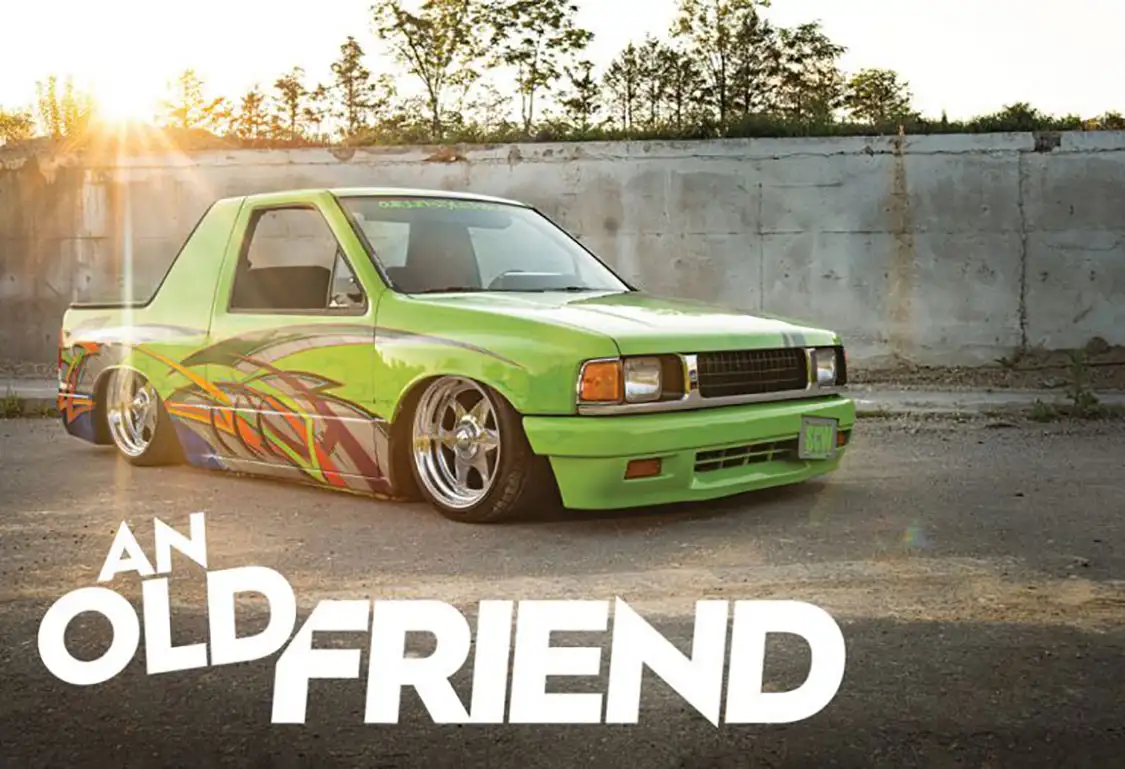
When one thinks of street trucks during the anything-goes mini-truck era of the late 1980s and into the ’90s, Nissan pickups, Toyota Tacomas and Mazda B2200s immediately spring to mind. What is slightly more difficult to picture is a bagged Isuzu Amigo scraping the streets and collecting trophies at the shows. But that’s exactly how it was in 1998, when this 1990 Isuzu Amigo first rolled out of Rob Rodell’s fabrication shop and onto the July 1998 cover of the iconic magazine, MiniTruckin’..
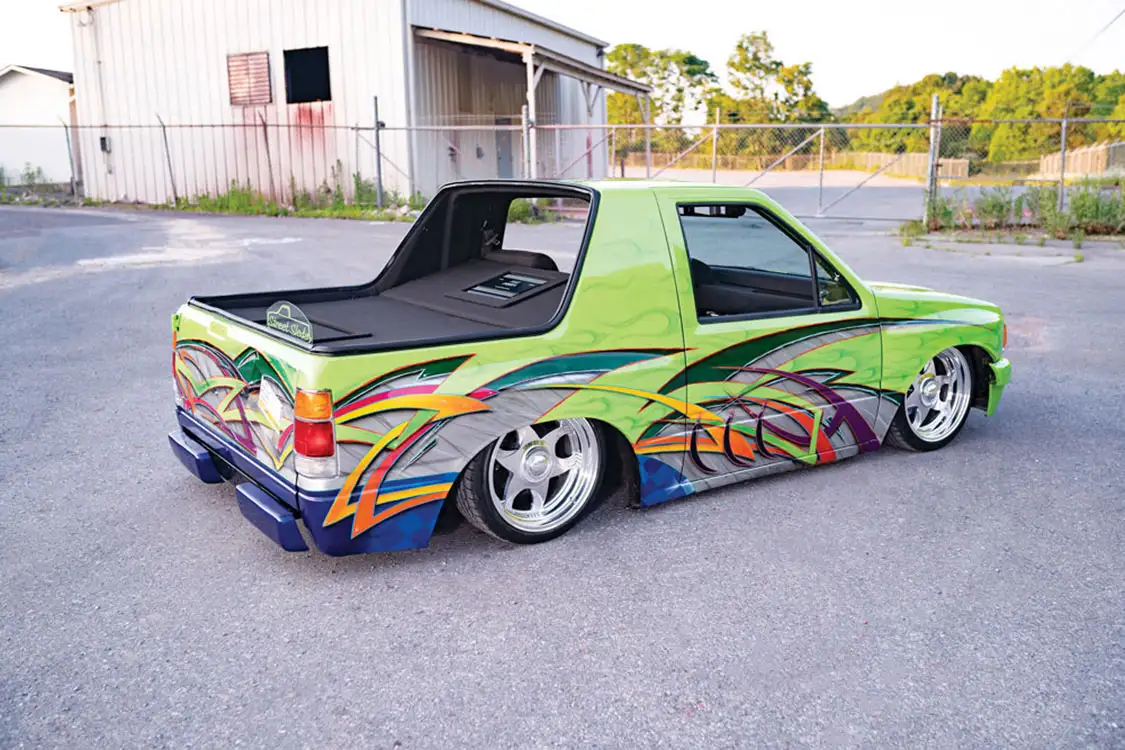
From Orbisonia, Pennsylvania, Jonathan Moore describes himself as your “average everyday grease monkey.” He is a factory worker by day and wrench turner by night, “living the life,” as Jon says.
Jon was introduced to the mini-truck scene as most enthusiasts are, via friends.
“One of my friends was a couple of years older than me, and he joined the Navy,” Jon recalled. When he came back for some R and R that summer of 1993, “he came back in a lowered Suzuki Samurai. And I was instantly hooked. I needed a mini-truck.”
This was a time of ground affects, drip paint jobs, neon lights and wire wheels…anything goes in an era when extravagance was excellence.
Jon’s first foray into the mini-truck industry was a 1973 Datsun 620 he picked up for $150 that was worse for wear even when he acquired it.
“It had its day before I bought it, but I squeezed every ounce of life out of it I could,” remembers Jon. 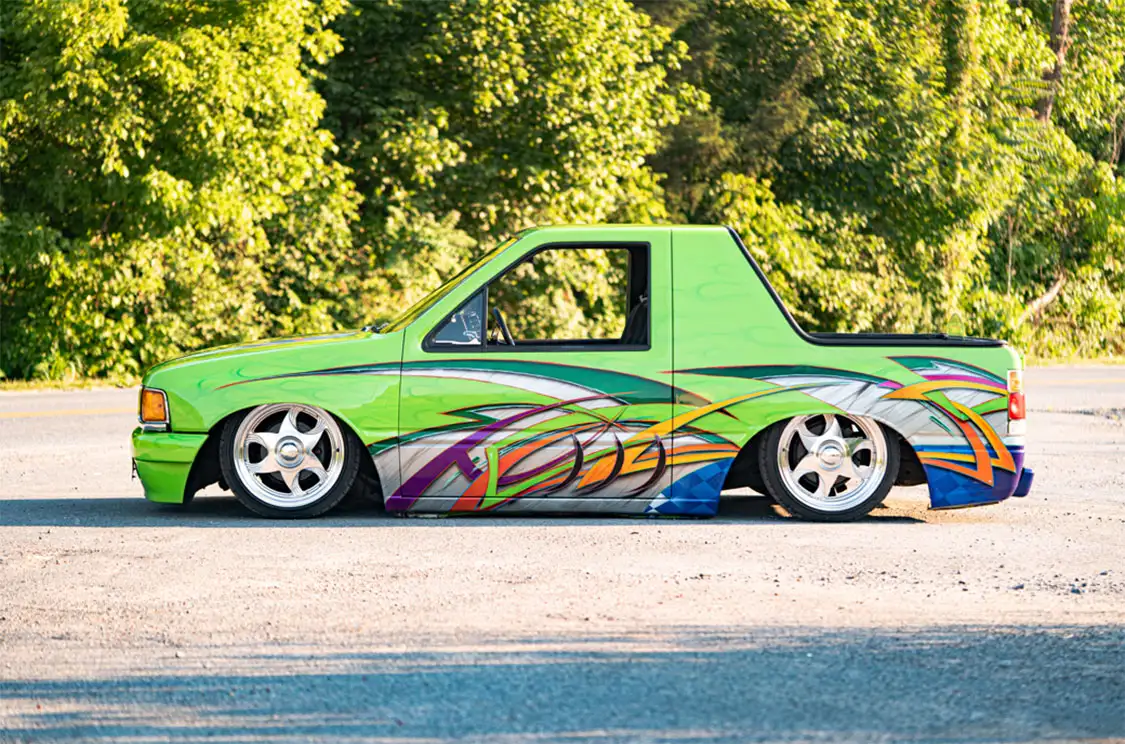
It was blue with red scallops. The torsions were cranked down, and it rode on 3-inch blocks in the back, a perfect ride for a high school student. But thanks to the Pennsylvania weather, rust eventually got the better of it and Jon moved on to other projects.
Having always been involved in cars and trucks, he next picked up a Suzuki Samurai similar to his high school buddy’s.
“I immediately lowered that thing down 3 inches and threw on some KMC Terminator 2s, and I gave it the classic drip paint job,” Jon says. It traveled the show circuit all over the Northeast. “And I immediately knew, I was the SUV guy—the Suzukis, the Trackers, the Amigos—those were my things.”
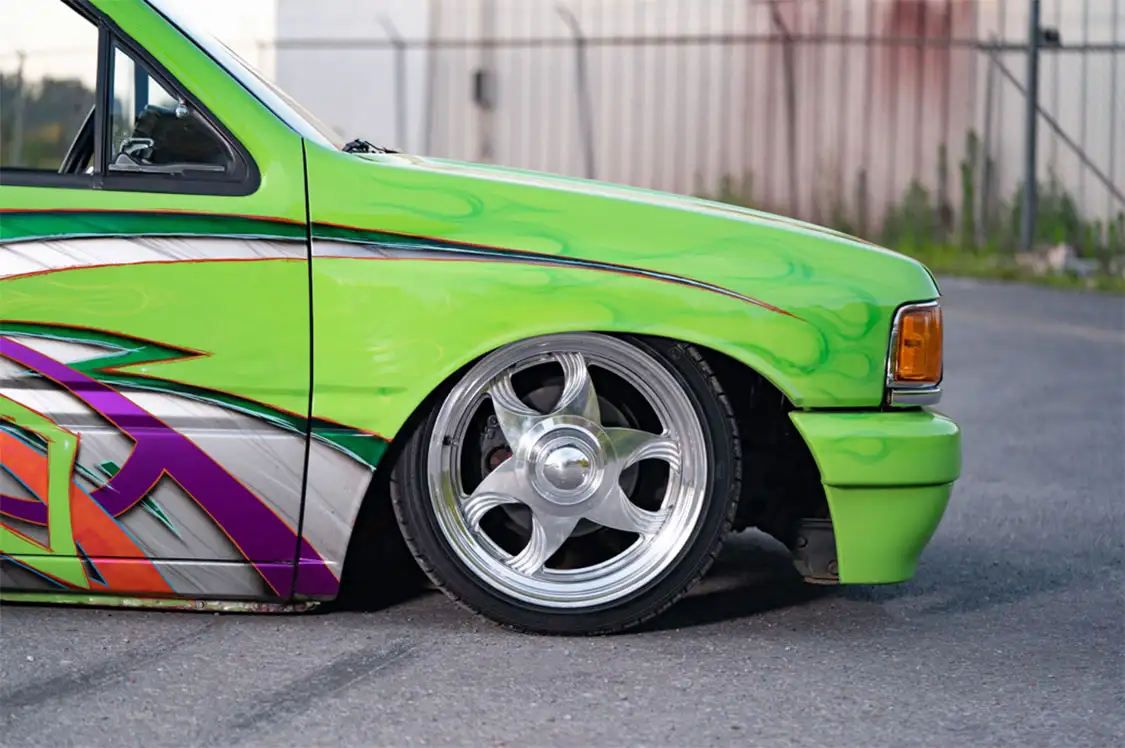
“Whenever MiniTruckin’ did features, they were mostly trucks because it was MiniTruckin’, but then one day I went to the mailbox and saw this lime green beauty on the cover. I was instantly in love,” Jon explains.
On the cover was this lime green 1990 Isuzu Amigo, the Lomego.
Love at first sight? Perhaps, but fast forward nearly 15 years later to when Jon got a phone call from a friend telling him he had seen Lomego in a yard about three hours from his house. Jon immediately drove up to see it, but the owner wouldn’t sell.
“I chased this truck for seven years,” Jon recalls. “I made it very clear I wanted to own her, and it took seven years to do it.”
Through persistent contact with the owner, one day there was a “for sale” sign on its window and Jon jumped at it.
For the lack of better terms, Jon acquired the Amigo in January 2016 as a glorified rolling shell basically sight unseen after a brief walk around at the time of purchase.
“I had seen the car in passing for a number of years and every time I’d stop and ask the guy to sell it,” he says. “I was never able to get underneath it. I was never able to look under the hood.”
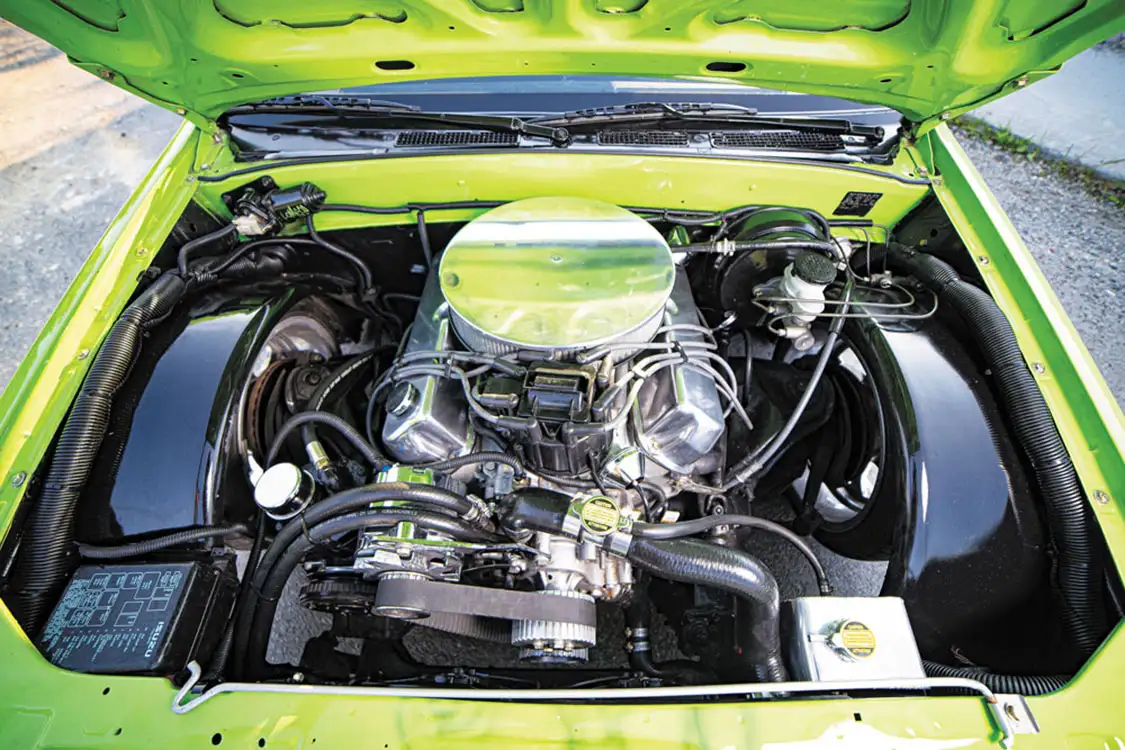
There was a motor in it but was locked up and wouldn’t even turn. The transmission was full of water. The interior was in a state of disintegration and covered in black mold, and the paint had been rubbed endlessly by the blue tarp she sat under for years. All of the original hydraulic suspension had been ripped out and incompetently replaced with an air suspension built from cast iron plumbing pipe.
“If there was no history with her, I would have taken it straight to the junkyard,” Jon adds. “It was that bad.”
His very supportive wife, knowing the years he had pined for the Amigo, encouraged him to buy it, but Jon didn’t even have a place to store it. He gave his brother a day’s notice, saying he needed to borrow his garage for a while.
Like every expert build—or in this case, resuscitation—the first step was to make a list.
“I basically sat back and assessed all of the damage and started making a list,” Jon says. One of the biggest roadblocks to the restoration was finding Isuzu parts in Pennsylvania. “You basically can’t,” Jon quips.
The last of the Amigos came to America in 1994 (it wouldn’t return until 1998 as a second generation), and Isuzu hasn’t sold vehicles in the United States for more than a decade.
With his family’s support, he got started on it.
It was always Jon’s plan to restore the outside of the Amigo to the exact specifications and look it had when original owner Rob Rodell and graphics man Ryan Evans did their magic to it in 1998. However, the entire body was disfigured and pitted by rust, and the only elements of the original build that Jon was able to retain was the body, the wheels, and the front suspension.
“Everything else,” Jon remembers, “was already ripped out or destroyed. And once I got underneath it, I thought to myself, ‘What the hell did I get myself into?’”
For example, there was a section of the firewall that was nothing more than duct tape covered with spray-on bed liner. There was much work to do.
In an off chance, the original painter, Ryan Evans, was making an appearance at a local show, and Jon took this opportunity to reconnect with him and pick his brain about the paint codes used on the Lomego.
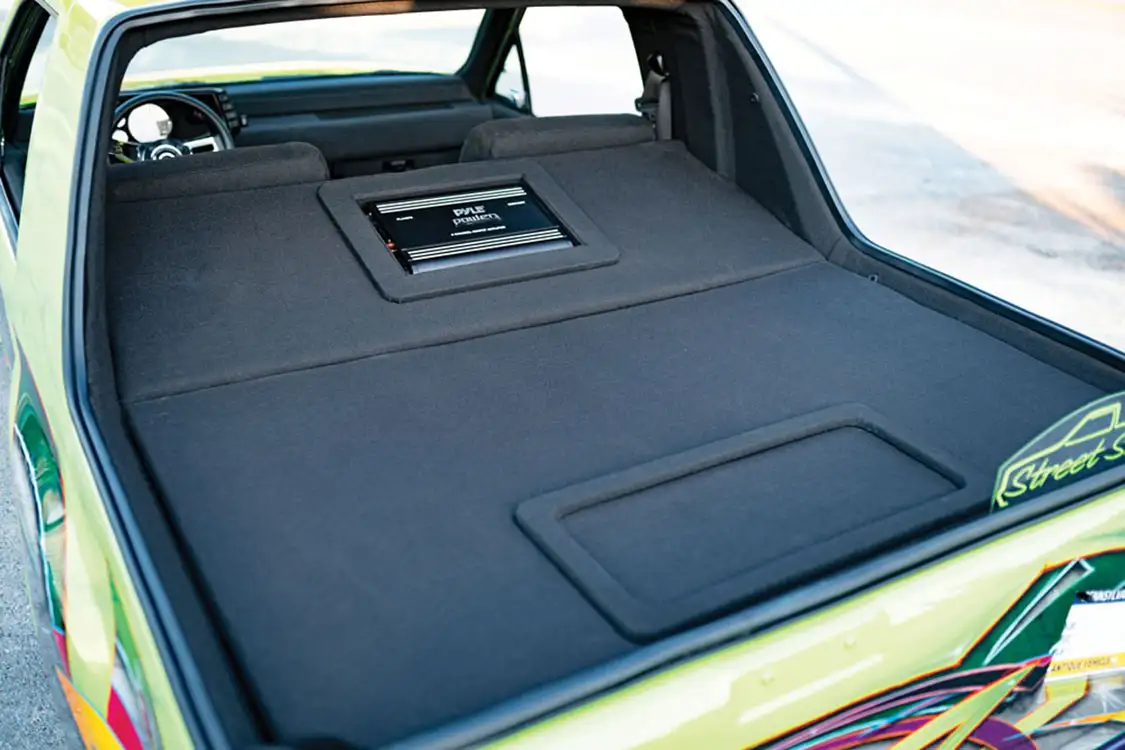
“He literally walked me through the paint codes,” Jon recalls. “Without his help, I know I couldn’t have pulled off the paint repairs.”
Not only could Evans rattle off all 18 paint colors and codes he used, but he it did it from memory. You see, the Lomego was Evans’ very first cover car, so she holds a special place in his heart as well.
Scott Hamilton had applied the original PPG Get Em Green to the body panels, and Jon painstakingly repaired the damaged panels with the same color as well as the 18 colors Evans had originally used. The shaved handles, mirrors, antennae mount, gas door and spare tire carrier were refreshed, as was the Frenched license plate on the tailgate. The front grille was as it came from the factory but instead gained a fresh chrome plating.
The fact that the interior had seen everything a Pennsylvania winter had to offer didn’t deter Jon. However, thanks to mold, rot, vermin and weather damage, he was only able to save the door panels and the dashboard. The rest was too far gone.
In its place, Jon installed period-correct materials and stylings reminiscent of the original. The black tweed on the Isuzu Trooper bucket seats (sans the headrests) is the very same style that was on it in 1998.
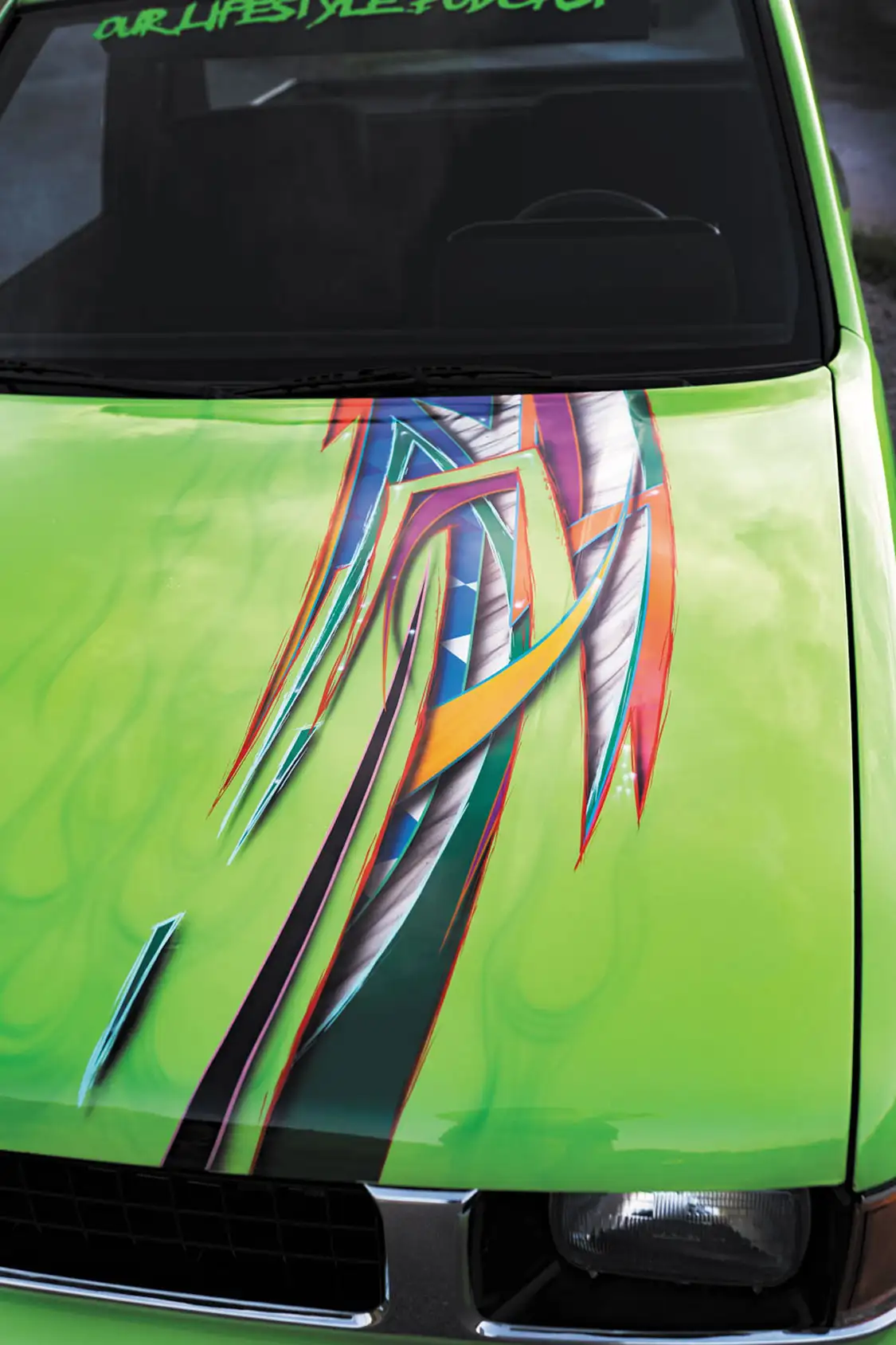
“I’d like to think that if Rob had gotten bored one day and decide to switch it up back in the ’90s, he would have done something exactly like this,” Jon says.
Though he wanted period-correct elements at every turn, there were some things that demand upgrades. Instead of a circa 1998 head unit, he decided on Power Acoustik and Pyle components to bring the sounds into the 21st century. The 5-inch dash speakers and 15-inch subwoofers are fed via a Pyle 2,500-watt amp, and although the head unit does come with a CD player for the old school feel, it is also Bluetooth compatible for modern forms of music.
The Lomego was powered by its original four-cylinder 2.3-liter 4ZD1 engine, but at one point, someone had shoehorned in a Ford 302. Instead of tracking down an original engine—likely it would have to be part of an entire donor car—Jon decided to keep it in place since the motor mounts were in good shape. He then decided that “anything that can be saved originally, will be saved.” So, the 302 V-8 remained. It was rehabilitated to run and then upgraded with a bevy of parts. The carburetor is a Holley Street Avenger, while spent gases exit via BBK headers, 2.5-inch exhaust pipes and custom shortened Dynomax mufflers.
The guts of the 302 remained mostly stock while the exterior parts received a generous polishing to match the new gear. The Jegs Gilmer belt spins a GM 1-wire alternator, and lubricating oil pumps through a remote cooler. Upfront, Jon made sure everything stayed cool with the custom-made aluminum radiator.
The powerplant is mated to a 1987 Ford T5 transmission that slips through the gears with a one-off short shifter. Power is supplied to the rear end via a 1987 Mustang driveshaft that was machined to fit the Isuzu Dana 44 rear locker with a 4:56 ratio.
The original frontend frame clip built by Sean Mahaney was in great shape, so that component remained the focal point of the front suspension. The 8-inch-notched rear, however, needed all crossmembers replaced before the triangulated four-link rear could be installed. The 8 inches of lift is facilitated via Firestone’s 2500-series airbags, powered by a York compressor and creatively activated with a Playstation controller.
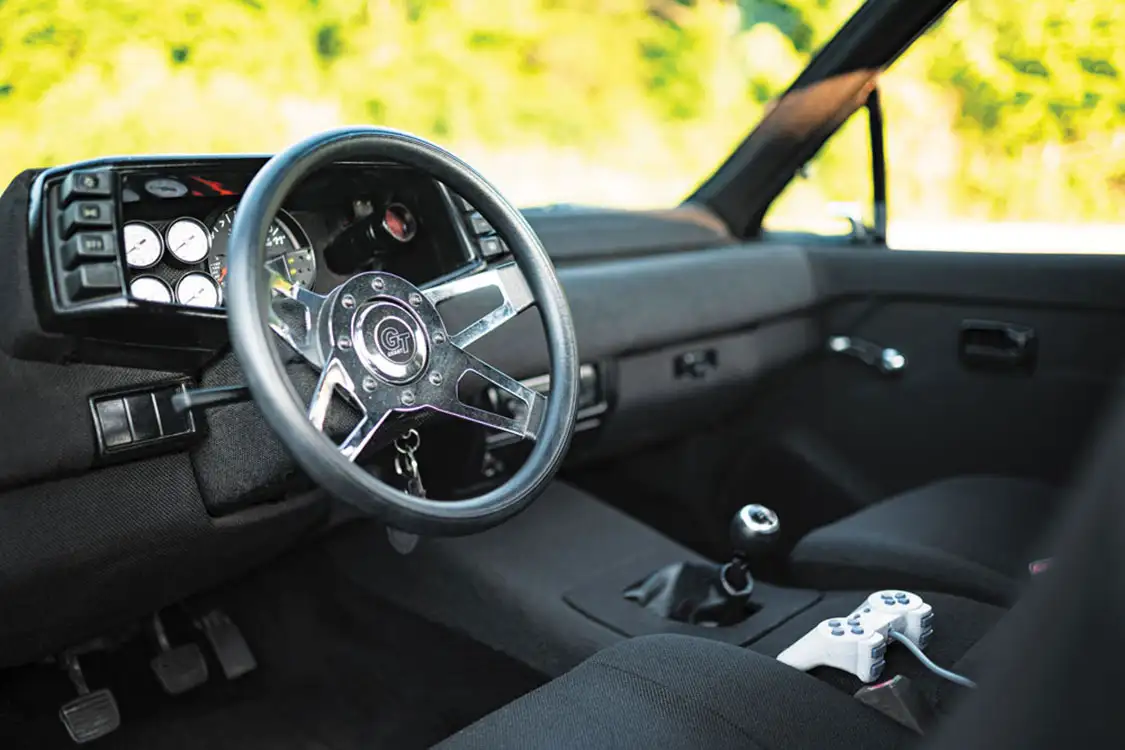
After all these years in car limbo, the original BFGoodrich Euro tires that wrapped around the Billet Specialties Odyssey wheels (17×8 inches) still held air, and Jon kept them on the SUV for a while. But since they were starting to get some weather cracks and show excess wear, Jon replaced them with Toyo Proxy tires, size 205/40R17.
Going with the Chevy S10 theme for the front suspension, the brakes there are discs also from an S10, whereas the rears retain the stock Isuzu units.
The mini-trucking community should be very pleased that Jonathan Moore obtained this SUV, that he took the time, talents and above all else, money, to bring it back from certain destruction. How many historic vehicles over the years have been neglected in fields and side yards to the point that they’re only good for the crusher?
“That’s one of the main reasons I chased her so hard over the years is because I saw her slowly deteriorating and it just broke my heart more and more every time I saw her,” Jon says.
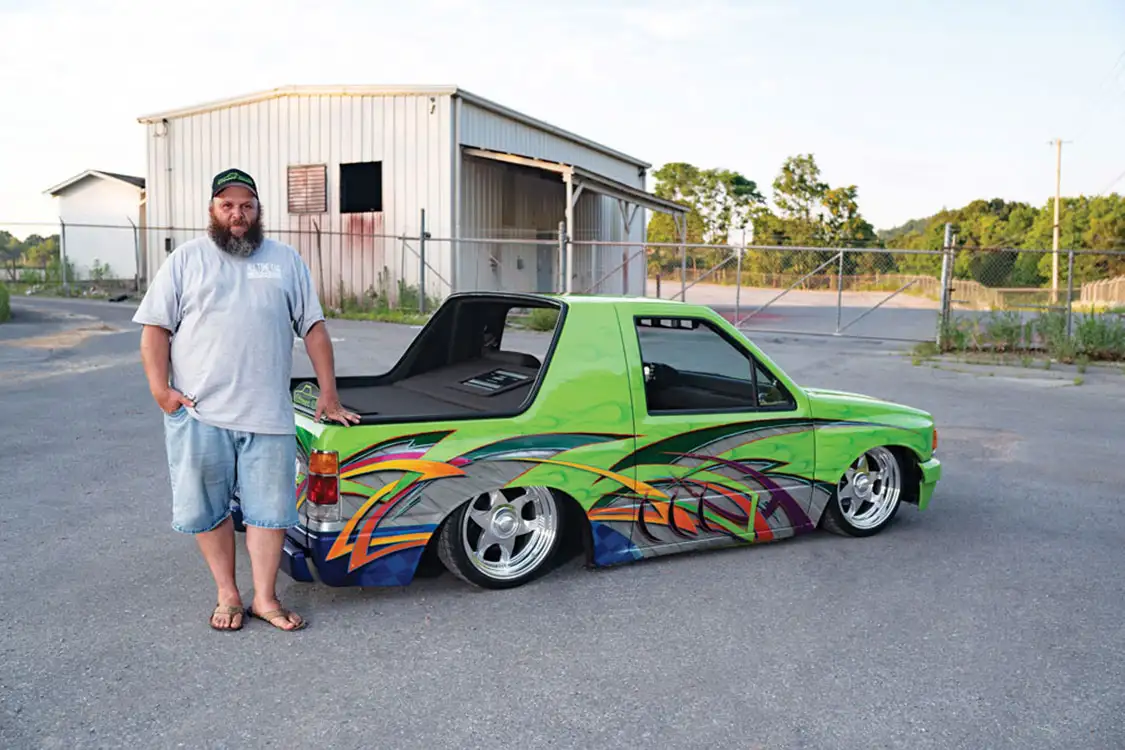
Restoring this piece of mini trucking history is “probably one of the greatest things I ever done in my automotive life, and it has definitely been the most challenging thing I’ve ever done. I had no clue how difficult preserving history was until I got her,” he says.
It has been 21 years since this historic great was on the cover of MiniTruckin’ and it has been 19 years since Lomego has seen the light of day at a car show. So, it’s about time we welcome back an old friend.
[divider ]TRUCK Specs [/divider]
Owner
Jonathan Moore, Orbisonia
1990 Isuzu Amigo
Street Sleds
Orbisonia, Pennsylvania
Chassis
Drivetrain
Body/Paint
Interior
Wheels & Tires
Special Thanks: I did all of the physical labor on this, but there’s no way I could have done it without the support of the original guys, my friends and my family. It’s all of that side support that helped me actually accomplish this. Specifically, I would like to thank my wife, Jessica, Rob Rodell for building her originally, Ryan Evan for a timeless paint job, and everyone else who helped in the original build in the ’90s.
Share Link